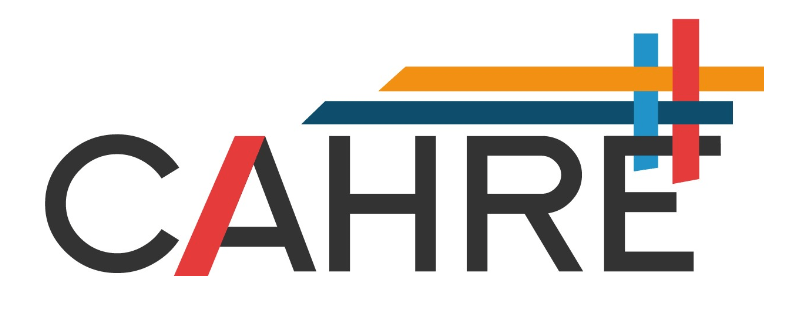Welcome to the first post of the CAHRE 2022 Blog series that will be showcasing the emerging talent we have within the CAHRE network. I hope will find their work interesting and their thoughts and experiences intriguing. As the resident ‘young person’ on the CAHRE internal committee, I am honoured to be kicking off the blog series.
I am Annie Chiang. I am currently in the second year of my doctoral studies, in which I’m looking at populations who are missing from Aotearoa’s official statistics and routinely collected datasets. I am interested in how people are missed by collection activities, the potential impacts of incomplete datasets on decision-making, and what we should be doing about this ‘problem’ of missingness. A PhD on data and the completeness of datasets in Aotearoa must deal with issues around rights, responsibilities, and representation, and particularly the representation of Māori. Māori are more likely to be underrepresented and underserved by data, compared to any other ethnic group. Data systems that underserve particular population groups is an inequity, however systems that underserve tangata whenua are not only inequitable but a failure to meet Te Tiriti obligations. And that, to me, feels heavy. Whilst I had some experience working with data going into the PhD, as an Asian person I couldn’t help but feel like I was ill-equipped to fully appreciate the implications of my research for Māori or to apply a Te Tiriti lens to my work. I felt like I was the wrong person and that it wasn’t my place to be doing this research.
If I am honest, Te Tiriti o Waitangi for a long time felt like more like a historic artefact than a living and active part of what I understood Aotearoa to be. Perhaps some of this has had to do how I was introduced to Te Tiriti in my early education, as somewhat of a ‘passing glance’ in the school curriculum, akin to how we learned about ANZAC Day or Queen’s Birthday. But more likely, it’s because I never thought Te Tiriti had anything to do with me. Te Tiriti was an agreement made between Māori and the British Crown, and I am neither Māori nor Pakeha. This article published in 2020 on ReNews captures these feelings better than I could in this short post.
Before beginning my PhD, I hadn’t needed to really consider the implications of Te Tiriti for me or for my work because much of this thinking was already done for me, or I was working on projects that weren’t related to ‘Māori issues’. However, the PhD is different. My PhD, as it is for many of my peers, is the first piece of research that I feel like I have ownership of. I am responsible for it and to it, and I must be able to proudly stand by every decision, claim and omission. It has forced me to think about how Te Tiriti relates to me, this research, the role I play as a tauiwi researcher. It felt like an important part of learning to become a researcher, to ‘practice what I preached’. But it was nevertheless a daunting task, one I wasn’t sure how even begin tackling.
In ‘From gorse to ngahere: an emerging allegory for decolonising the New Zealand health system’, Heather Came and her co-authors recommend that work of tauiwi researcher is create safe spaces where Maori ways of doing, being and knowing can thrive. In their allegory, they state that “gorse can provide an interim protective canopy for shade-loving native plants [,the ngahere].” It’s an image of symbiosis, not competition. I feel that some migrant communities often see their relationship with Māori as competitive, that it is a ‘us’ versus ‘them’, a feeling that migrant community issues are being overlooked for Māori issues, vice versa. But it doesn’t need to be that way. I do not need to cleanse my work of my Asian, migrant identity, in order for it to support the interests of Māori. My identities, and the privilege my position and education has afforded me can provide the ‘shade’, another avenue through which Māori interests are raised within the discourse.
It’s been challenging and confronting start to my research. I have often felt ashamed of my ignorance, that I have hadn’t given my relationship and responsibilities to Te Tiriti and to Māori the time and consideration that they deserved. I have felt silly and stupid for not knowing how to begin to honour that relationship or even how to begin a conversation about it. But each time I have asked a ‘silly question’ or confessed my lack of knowledge to more senior academics, Māori and tauiwi, I have been met with grace and guidance.
A piece of advice from my supervisors and advisors is that what we should be doing is not ‘research about’ but ‘research with’. This can be difficult when, as PhD students, we so desperately want our research to be ours. But I am finding that the more I let go and allow others to share in the ownership and direction of my project, the more meaningful this research seems to be. In trying to learn more about how to do research with Māori, that is in support of Māori interests, I find that I am the one feeling supported and being told that I belong. It’s a symbiosis.
This is still very much the beginning of this journey for me and I am very much still fumbling my way through, but already I have learned that it is better, more fulfilling, more authentic, to be vulnerable and say that ‘I’m sorry, I don’t know’ then ask for guidance (and apply it), than to stand by and tell myself that it hasn’t got anything to do with me. I hope that I can honour the grace and wisdom has been shared with me by continuing to do mahi with and continuing to learn. I’d love to hear more from others in our network about how they have found their place in New Zealand and how they are integrating Te Tiriti into their work as an AEM researcher.

About the author
Annie Chiang annie.chiang@auckland.ac.nz
Annie was born in Taiwan and has grown up in New Zealand. She completed her BHSc/BSc, PGDipPH and MPH at the University of Auckland. Currently, Annie is a PhD candidate with the section of Epidemiology and Biostatistics. Her doctoral research will focuses on missingness in government collected datasets.
Her research involvements have included projects related to mental health, hearing health, deprivation, refugee settlement and gender bias, all of which utilise her skills as a data analyst within the Statistics New Zealand Integrated Data Infrastructure.

Thank you, Annie, for your profound reflections and for capturing with delicate nuance the positioning (and trepidations!) of A/EM researchers in Aotearoa. I absolutely agree that there is a tendency to position Asian and ethnic researchers in competition with other minority groups when this need not, and is not, the reality ‘on the ground’. There is much to learn from and with and together.
Great piece Annie, I totally agree with your sentiments and am also sharing the same feelings as a MELAA (AEM) researcher who is working in the refugee space. Much to learn from and with !